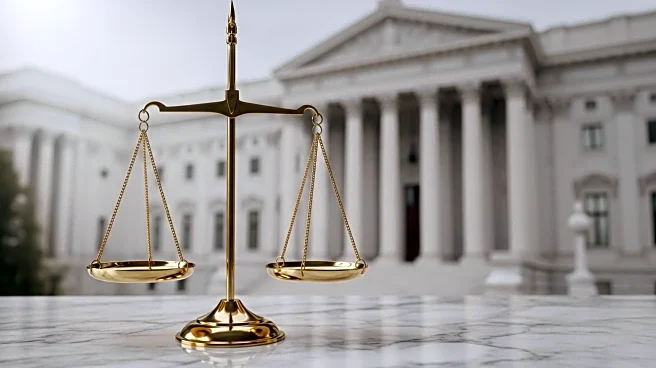What's Happening?
The Trump administration has requested the Supreme Court to allow it to freeze over $4 billion in foreign aid funding, which Congress had previously allocated. This move follows a lower court ruling that mandated the spending of these funds by the end of September. President Trump is attempting to use a legislative tool known as a pocket rescission to claw back the money, arguing that it does not align with his policy objectives. The administration is also dealing with another $6.5 billion in foreign assistance, which it plans to obligate by the end of the fiscal year. The legal battle reached the Supreme Court after U.S. District Judge Amir Ali ruled that the executive branch must spend the appropriated funds. The Justice Department's request to freeze this decision was declined by the U.S. Court of Appeals for the D.C. Circuit.
Why It's Important?
The Trump administration's attempt to freeze foreign aid funding highlights a significant clash between the executive branch and Congress over budgetary control. This case underscores the ongoing debate about the separation of powers, with the administration arguing that the lower court's injunction threatens this principle. The decision could have substantial implications for U.S. foreign policy and international relations, as the funds in question support various global initiatives, including those managed by the U.S. Agency for International Development. The outcome of this legal battle may set a precedent for future executive actions regarding congressionally approved spending.
What's Next?
The Supreme Court's decision on this matter is pending and could be issued at any time. If the court sides with the Trump administration, it may embolden further executive actions to rescind congressionally allocated funds. Conversely, a ruling against the administration could reinforce congressional authority over budgetary decisions. The case has already seen significant legal maneuvering, with nonprofits and businesses involved in foreign assistance projects challenging the administration's actions. The broader implications of this decision will likely influence future interactions between the executive branch and Congress regarding fiscal policy.











